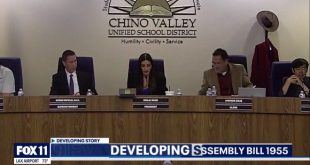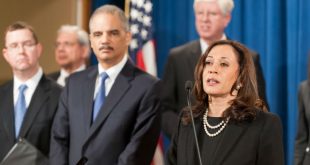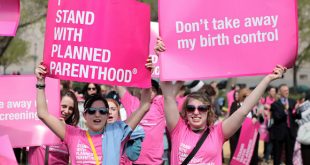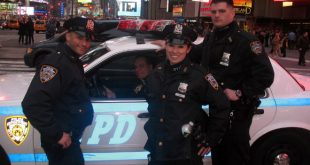We know that the so-called Black Lives Matter movement does not like anyone saying that ALL lives matter. Liberal Martin O’Malley even apologized for saying it. But that was his weakness. O’Malley could have stood his ground.
Richard Sherman, a cornerback for the Seattle Seahawks, was recently caught up in a social media storm. The set-up is bizarre. Someone created a meme that depicted Sherman and teammate Marshawn Lynch with the caption “When we gon Kill These KKKrakas Bro.”
Railing against the meme, a Sherman impostor responded with a rant on personal responsibility, black-on-black crime, “senseless black shootings of whites and police officers,” and other politically incorrect comments.
The real Sherman held a press conference to set the record straight.
“There were some points in that article, or in that post, that were relevant and I could agree with. But there were also some obviously ignorant points in there…But as a black man, I do understand that black lives matter. You know, I stand for that, I believe in that wholeheartedly…I also think that there’s a way to go about things, and there’s a way to do things. And I think the issue at hand needs to be addressed internally, and before we move on.”
Some of those same liberal critics must have been stunned at this point. They probably expected the high-profile football player to condemn the fake Sherman’s rant and declare undying loyalty to Black Lives Matter. He did not.
“We need to solidify ourselves as people and deal with our issues,” he said, “because I think as long as we have black-on-black crime and, you know, one black man killing another. If Black Lives Matter, then it should matter all the time.”
In other words, Sherman spoke of personal responsibility, black-on-black crime…
Sherman said he wished more athletes would try to “encourage these kids to stay out of the streets, stay out of gang violence, stay off these drugs, and stay in school and do your best to come up with the next great idea, be the next entrepreneur instead of some of the goals these kids have in inner cities.”
Good for him. Let’s hope he doesn’t backtrack or apologize. I can imagine the hate mail he’s getting.
 Black Community News News and Commentary for Christians
Black Community News News and Commentary for Christians




*Black Lives Matter; Take Pride In Parenting; End Our National Epidemic of Child Abuse and Neglect; End Community Violence & Police Fear*
Speaking At The Eulogy For The Honorable Reverend Clementa Pinckney, President Barack Obama said:
*”Perhaps it causes us to examine what we’re doing to cause some of our children to hate.”* (Applause.)
Video Excerpt from Obama Remarks Search YouTube: /watch?v=2T_GwYI7MnQ
With all due respect to my American neighbors supporting the Black Lives Matter movement, I believe your cause would better serve all Americans if your organization were to honestly, openly and compassionately address the *National Epidemic of Child Abuse and Neglect* that for decades has deprived untold numbers of depressed children from experiencing and enjoying a safe, fairly happy American kid childhood.
I strongly suggest members of the Black Lives Matter target communities that for decades have embraced The Street Culture Baltimore Mom of The Year Toya Graham desperately struggled to keep her young teen son from embracing.
In his 2015 Grammy award winning Rap Performance titled “I”, Kendrick Lamar writes, *”I’ve been dealing with depression ever since an adolescent.”*
During a January 20, 2011 LAWeekly interview (Google search) Kendrick, born in 1987, the same year songwriter Suzanne Vega wrote a song about child abuse and *VICTIM DENIAL* that was nominated for a Grammy award, he told the interviewer:
*”Lamar’s parents moved from Chicago to Compton in 1984 with all of $500 in their pockets. “My mom’s one of 13 [THIRTEEN] siblings, and they all got SIX kids, and till I was 13 everybody was in Compton,” he says.”*
*”I’m 6 years old, seein’ my uncles playing with shotguns, sellin’ dope in front of the apartment. My moms and pops never said nothing, ’cause they were young and living wild, too. I got about 15 stories like ‘Average Joe.'”*
It seems evident to me Kendrick identified the source of his depression, the roots of poverty, the child abuse/maltreatment that prevented him, his brothers, sisters, cousins, neighborhood friends, elementary and JHS classmates from enjoying a fairly happy, safe Average Joe and Josie American kid childhood.
Seems the adults responsible for raising the children in Kendrick’s immediate and extended family placed obstacles in their children’s way, causing their kids to deal with challenges and stresses young minds are not prepared to deal with…*nor should they or any other children be exposed to and have to deal with.*
It seems evident to me these PARENTAL INTRODUCED obstacles and challenges cause some developing children’s minds to become tormented and go haywire, not knowing *OR NOT CARING ABOUT* right from wrong…because as they mature, young victims of child abuse realize their parents introduced them to a life of pain and struggle, totally unlike the mostly safe, happy life the media showed them many American kids were enjoying. *RESENTMENT*
I cannot speak for anyone else, but if I was raised in Kendrick’s family I would most likely be silently peeved at my parents for being immature irresponsible “living wild” adults who deprived me of a safe, happy childhood.
Though like many victims of child abuse, most likely I would deny my parents harmed me, seeking to blame others for the pain my parents caused to me.
I wonder how little Kendrick and his classmates reacted when their elementary school teacher introduced the DARE presenter and they learned about the real dangers of drugs and how they harm people, including their parents?
In a Oct 25, 2012, LAWeekly interview (Google search) Kendrick talks about being a SIX-YEAR-OLD child who was not able to trust and rely on his mom…essentially he speaks about being emotionally abandon by his own mom.
Growing up during the 60-70s I listened to virtually ALL American music artists of African descent writing songs admiring, praising, respecting and loving the maternal half of our population.
I am curious to know if members and supporters of the Black Lives Matter movement have wondered why for the past three decades, many popular American music performers of African descent have been characterizing the maternal half of our population as *itches and *hores…essentially less than human creatures or people not worthy of respect?
Honestly, I have a feeling most BLM supporters don’t have the strength or will to face the truth about who is responsible for filling our prisons with depressed, angry, frustrated teens and young men who were victims of early childhood abuse and neglect at the hands of immature teen girls and women who irresponsibly begin building families before acquiring the skills, PATIENCE and means to properly raise a fairly happy American kid who enjoys a Safe Fun Street to play in.
This video depicts horrific examples of men who were victims of childhood abuse and neglect, conditioning a young teen to embrace ‘The Street’ culture Baltimore Mom of The Year failed to protect her teen son from…not to mention representing the fear peaceful people living and WORKING in the community experience knowing depressed, angry, unpredictable teens and young adults need to vent their angers and frustrations for being introduced to a life of pain and struggle by irresponsible, “living wild” single moms and/or dads.
Search youtube; /watch?v=C3ChOLiJa8k
With all due respect to my American neighbors of African descent, the oppression of humans that led to racism and slavery has been replaced with a new form of human oppression that impedes and deprives many American children from experiencing a safe, fairly happy American kid childhood.